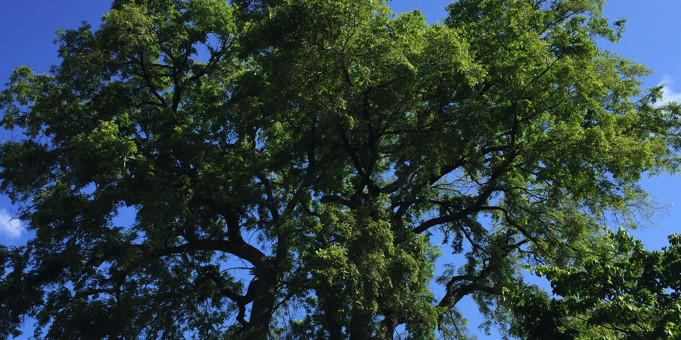The Trees as a Public Good Network announces the online availability of “Why Trees Matter for Green Development,” a forum with 56 advocacy organizations and 24 Democratic Committees cosponsors.
This webinar focuses on making development climate friendly by preserving trees’ crucial eco-services. As Senator Ed Markey said, “Climate action can’t be an either-or… We need new and old trees, solar panels and forests, dense housing and accessible green space.” William Moomaw, a lead author of the 2007 Nobel Prize–winning IPCC report, explains why state-owned forests should not be logged for the best climate solutions. “Cutting older trees and planting younger trees will never surpass the carbon accumulation by larger trees that continue growing.”
Massachusetts already has enough disturbed and developed land to site solar to meet all our state’s needs. Yet we allow destruction of globally rare forests in SE Mass. Meg Sheehan (Community Land and Water Coalition) documents square miles clearcut for industrial sand mining and installation of solar arrays. Linda Coombs of the Aquinnah Wampanoag tribe reminds us, “Indigenous people lived in relation to the world, with everything having a right to its own life. I ask you to think about that.” Sign CLWC’s petition against sand mining; write to your legislators and sign the petition for responsible solar siting; donate to CLWC.
State Senator Cindy Creem’s Municipal Reforestation Act aims for 60% tree cover in every city and town because “trees are essential infrastructure for climate resilience and environmental justice.” Zbigniew Grabowski (U Connecticut) argues urban futures can be equitable, denser, and greener “if communities adopt wise land-use planning” including green infrastructure. For example, restoring streams and continuous tree canopy can provide cooling corridors to reduce urban heat. But cities have done a poor job of including communities in environmental planning.
Mimi Turchinetz (Hyde Park Neighborhood Association) explains residents’ concerns about Boston’s Squares + Streets initiative. The City promises affordable housing and public space improvements yet rubber-stamps plans with no protections for trees, no requirements for deep affordability, and no protections from heat-island creation or displacement of BIPOC and legacy small businesses.
Dorchester resident Aalana Feaster (Environmental Health Is Wealth Advocacy Coalition) outlines the fight to save one-third of her community’s tree cover, documenting “a gap between stated commitments to Environmental Justice and actual actions.” State agencies should lower thresholds triggering full environmental review and require cumulative impact analyses in EJ communities. Sign her petition and watch the community-organized Environmental Action Summit.



Recently on Twitter